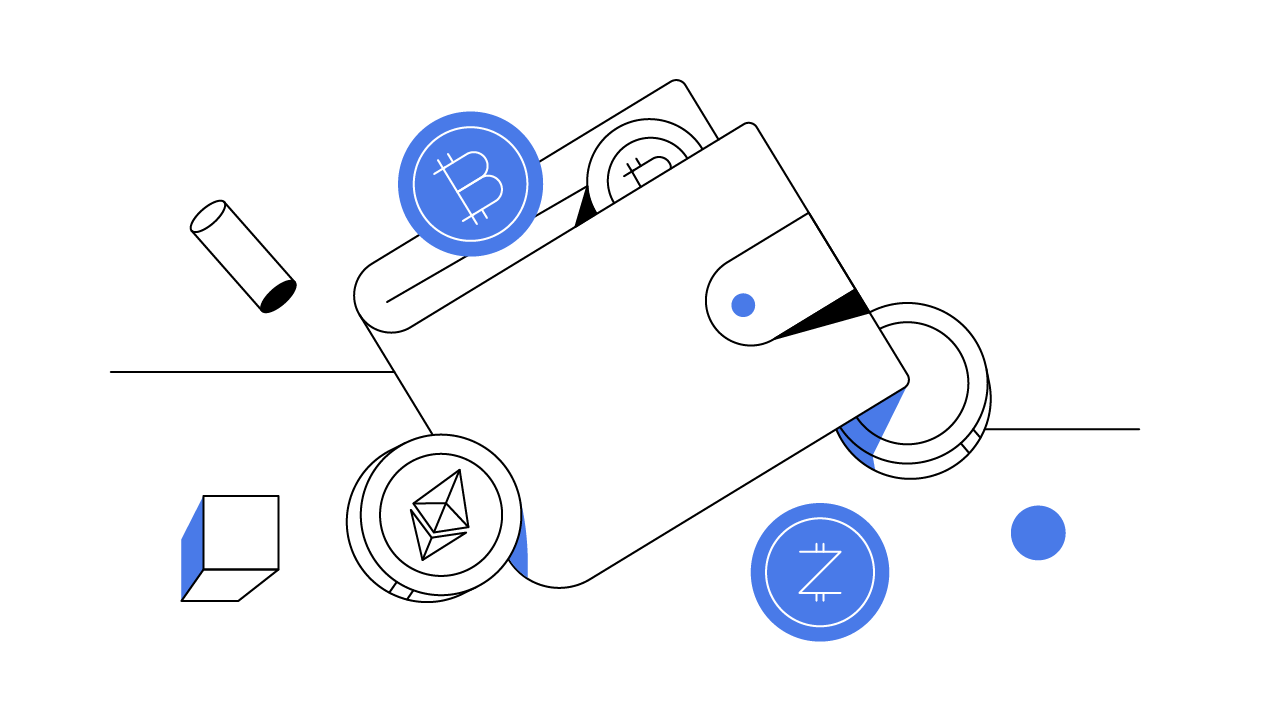Types of Cryptocurrency Wallets and How to Choose One?

To own bitcoin or any other cryptocurrency, you need a way to store it. That place is called a crypto wallet. For the purposes of this article we’ll use Bitcoin as an example, but the same is true for every cryptocurrency.
Instead of actually holding bitcoins, a wallet connects to the blockchain through your individual key or mnemonic seed, allowing you to access your bitcoin address.
If the wallet software is well designed, it will feel as though your bitcoins are really there, making the use of cryptocurrency more convenient and intuitive.
At any moment you can enter your 12‑ or 24‑word mnemonic seed into another wallet and move over quickly.
Wallets can run on your computer or mobile device, on a dedicated hardware gadget, or even on a sheet of paper. Below is a brief look at the different types.
Hot and cold crypto wallets
As noted, crypto wallets can also be classified as “hot” or “cold,” depending on how they work.
A hot wallet is any wallet that is in some way connected to the internet. For example, when you create an account on exchanges like Binance, Kraken, or Coinbase and send funds to your account, you deposit them into the exchange’s hot wallet and the balance appears in your profile. These wallets are easy to set up and the funds are quickly accessible, which makes them convenient for traders and other frequent platform users.
Cold wallets, on the other hand, have no connection to the internet. Instead they use a physical medium to store private keys offline, making them resistant to online hacking attempts. As such, cold wallets tend to be a much safer alternative for storing your coins. This method—known as cold storage—is especially suitable for long‑term investors or “hodlers.”
Online crypto wallets
Online or cloud‑based wallets offer greater convenience. In general you can access your bitcoins from any device as long as you have the correct passwords and seed phrases. All of them are easy to set up and come with desktop and mobile apps that simplify spending and receiving bitcoin, and most are free.
The downside is lower security due to operating online and the weaker security of the devices we use—smartphones or computers.
Many leading online wallets are tied to crypto exchanges such as Binance, Kraken, Coinbase, or Blockchain.
Software crypto wallets
Installing a crypto wallet directly on your computer gives you the peace of mind that you control your keys. Most are fairly easy to configure and are free.
When creating such a wallet it is critical to save the 12‑ or 24‑word seed phrase that is generated. This is the actual key to the coins you store in the wallet.
As already mentioned, you can move coins out of your current wallet and into another at any time simply by entering the seed phrase into the new one.
The drawback is that they require more maintenance in the form of backups and security. If your computer is stolen or hacked and your private keys (seed phrase) aren’t stored elsewhere, you lose your bitcoins. Popular software wallets include Electrum, Exodus, and, for advanced users, Bitcoin Core.
Mobile crypto wallets
Mobile wallets work much like desktop ones but are designed specifically as smartphone apps. They’re very convenient because they let you send and receive cryptocurrency by scanning QR codes.
This makes mobile wallets especially handy for day‑to‑day transactions and payments, which is why they’re an important option for spending bitcoin and other cryptocurrencies in the real world. Trust Wallet and Mycelium are two of the best‑known mobile crypto wallets.
Exodus is available for both computer and smartphone and can be synced so you see up‑to‑date information on both devices.
Just like computers, however, mobile devices are vulnerable to malicious apps and software. It’s therefore recommended to encrypt your mobile wallet with a password and back up your private keys or seed phrase in case your smartphone is lost or stops working.
Hardware wallets
Hardware wallets are small devices that connect to the internet only occasionally to perform bitcoin transactions. They offer excellent protection because they are usually offline and therefore not susceptible to hacking. They can, however, be stolen or lost along with the bitcoins stored on their private keys. Some large investors keep their hardware wallets in safe locations such as bank vaults. As with other wallets, it is crucial to save and store the seed phrase securely—it gives you access to the coins. Notable hardware wallets include:
Paper wallets
A paper wallet is a sheet of paper on which a crypto address and its private key are printed in the form of QR codes. Those codes can then be scanned to execute cryptocurrency transactions.
Some paper‑wallet websites allow you to download their code to generate new addresses and keys while offline. As such, these wallets are highly resistant to online hacking and can be considered an alternative form of cold storage.
Note
The sites and companies mentioned in this article are not the only options. Do your own research and choose the wallet and storage method that meets your specific needs.
Until recently Altcoins.bg did not offer a crypto‑wallet function that lets you easily and quickly turn your money into cryptocurrency and back.
Now, however, we’re excited to announce a fully functional crypto wallet on the platform that you can use to deposit over 130 currencies!
Learn more about the new Altcoins wallet here:
Altcoins.bg – Your free digital crypto wallet in Bulgaria








